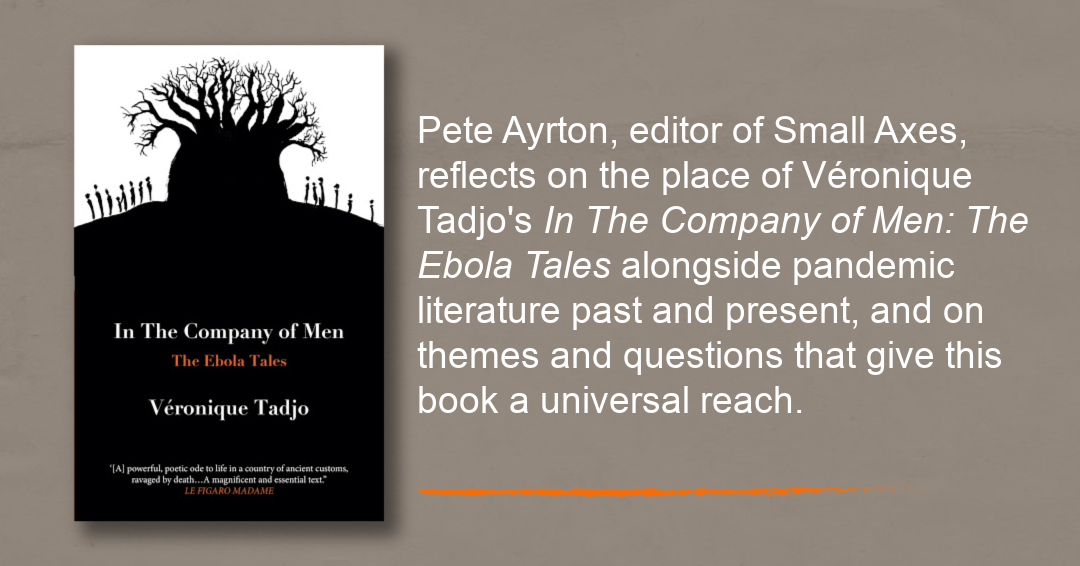In March 2021 we will publish
In the Company of Men, a novel by Véronique Tadjo which describes the Ebola epidemic in an unnamed African country. Initially, I found the title puzzling, until I discovered the phrase in one of the stories and understood its significance. The title unlocks a key feature of the book, which is to stress how all the elements of the epidemic – humans, animals, trees, rivers and birds – are equally important. The ancient baobab tree sees and tells all; and the bats who are given voices in the book have been forced by encroaching human beings into ‘the company of men’.
In the beginning, the Ebola epidemic got little attention in the West. It was only when medical aid workers started returning, having caught Ebola in Africa, that Western nations began to take the disease seriously. In September 2014, the World Health Organisation (WHO) stated that the ‘Ebola epidemic ravaging parts of Western Africa is the most severe acute public health emergency seen in modern times’ - but such warnings went unheeded until the message was brought back by those who had contracted the deadly infection during their time in Africa.
The structure of In the Company of Men is a series of chapters, each narrated by one of the protagonists of the epidemic: a doctor, a bat, a baobab tree, a virus, a student, a relative. The narrators are on an equal footing with each other – they are all part of the situation, and in some cases, part of the problem.
In arguing for a more holistic relationship between mankind and nature, Véronique Tadjo shows that it is only if we learn to respect the birds, the bees and the trees that we will be able to stop future epidemics and pandemics. ‘Live and let live’ needs to apply to everything on the planet, not just to our fellow men and women.
Towards the end of Pale Rider, her remarkable book on the Spanish Flu, Laura Spinney writes about how wars and plagues are remembered differently. ‘The two world wars are still raw, we refer back to them obsessively and are firmly convinced that we will never forget them – though past experience suggests that they will gradually lose their lustre in our minds, or be obscured by other wars. Meanwhile the Spanish flu intrudes more and more into our historical consciousness, but it can’t shake the prefix “forgotten”.’
One can also add that, in the past, we have been more concerned with wars because we see them as man-made, whereas pandemics just ‘happen’. But epidemics and pandemics do not just happen – they are the result of humans encroaching on and violating the natural habitat.
And it is within our power to avoid them happening.
As time passes, we shall become increasingly aware of the consequences of our selfish interaction with nature and understand that the extent of our crimes is even greater than we had imagined. Fortunately, with this insight can come the impetus to reverse these crimes. Science has a role to play in this process of reversal, as do cultural artifacts such as Ms Tadjo’s powerful, poetic book In the Company of Men. Like Camus’ The Plague, it encourages us to act. And like The Plague, the story is set in Africa - but its reach is universal.
Pete Ayrton
London
January 2021
